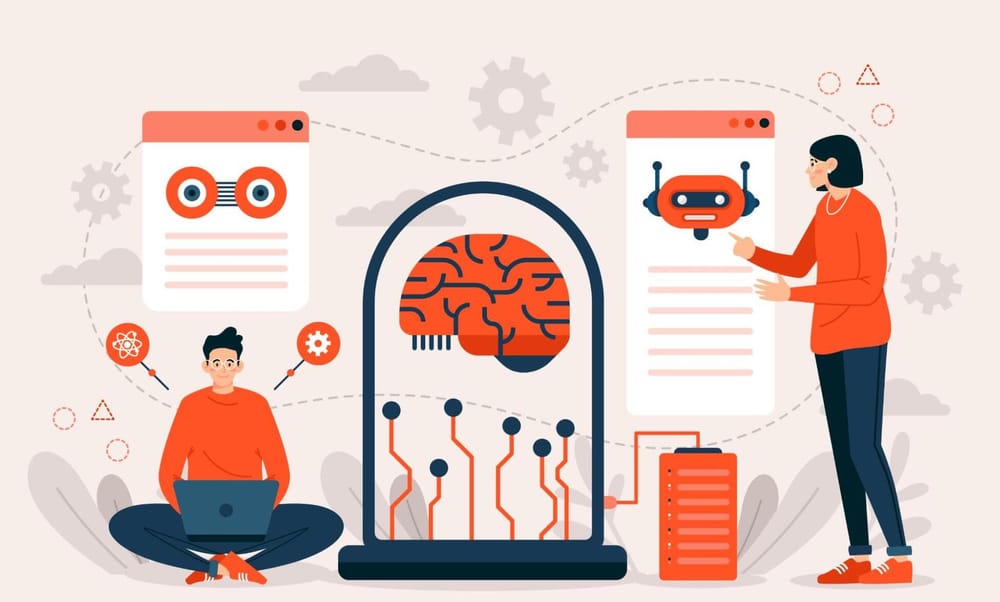Deep Learning: Unlocking the Potential of Neural Networks
Artificial intelligence (AI) has been rapidly evolving, and at the forefront of this progress is a subfield called deep learning. Deep learning leverages the power of neural networks, complex systems inspired by the human brain, to tackle an array of challenges that were once insurmountable. This blog post dives into the world of deep learning, exploring its core concepts, transformative impact on various fields, and the exciting possibilities it holds for the future, extending far beyond the realm of AI.
What are Neural Networks?
Imagine a network of interconnected nodes, loosely mimicking the structure of neurons in the brain. These nodes process information and learn from experience, just like their biological counterparts. Deep learning builds upon this concept by using many layers of interconnected nodes, allowing for the extraction of increasingly intricate patterns from vast amounts of data.
Deep Learning's Transformative Impact:
The ability to process vast amounts of data is what truly sets deep learning apart. This has led to breakthroughs in several areas, fundamentally transforming how we approach various challenges:
- Image and Speech Recognition: From Pixel Perfect to Human-Level Understanding, Deep learning algorithms can now identify objects, faces, and even emotions in images with remarkable accuracy. This has applications in everything from self-driving cars that can navigate complex environments to medical diagnostics where deep learning can analyze medical scans to detect abnormalities with higher precision.
- Natural Language Processing (NLP): Bridging the Communication Gap Between Humans and Machines, Deep learning has revolutionized NLP, enabling machines to understand and generate human language with greater fluency. This forms the foundation for chatbots that can provide customer service with a more human touch, virtual assistants that can understand and respond to our natural language queries, and machine translation tools that can break down language barriers and foster global communication.
- Scientific Discovery: Deep learning is being used to analyze complex datasets in fields like genomics and astronomy, accelerating scientific progress and uncovering hidden patterns. Deep learning models can analyze massive datasets of genetic information to identify potential disease markers or analyze astronomical data to discover new galaxies and understand the universe's formation.
Beyond the Hype: Addressing Challenges and Charting the Course for the Future
Deep learning is a powerful tool, but it's not without its challenges. Here's a glimpse into the roadblocks and how researchers are working to overcome them:
- Taming the Data Monster: Addressing the Need for High-Performance Computing and Quality Data Training these complex models often require significant computing power and large, high-quality datasets. Researchers are actively developing neuromorphic computing hardware specifically designed for deep learning algorithms, promising to reduce the computational burden. Additionally, advancements in data collection and curation techniques are helping to address the need for high-quality datasets.
- Lifting the Veil of Secrecy: Unveiling the Black Box and Building Trust with Explainable AI (XAI) Interpreting the decision-making process of deep learning models can be difficult, raising concerns about transparency and bias. Explainable AI (XAI) focuses on making the decision-making process of deep learning models more transparent, allowing for greater trust and control in their applications.
The Future of Deep Learning:Deep learning's impact extends far beyond the realm of AI. Here are some exciting possibilities that showcase its vast potential:
- Personalized Medicine: Revolutionizing Healthcare with Deep Learning-Driven Insights, Deep learning could analyze a patient's medical history and genetic data to predict disease risks and personalize treatment plans, leading to more effective and targeted healthcare interventions.
- Drug Discovery: Accelerating the Search for Life-Saving Treatments, Deep learning models can analyze vast datasets of molecules to accelerate the discovery of new drugs and materials, leading to faster development of treatments for currently untreatable diseases.
- Climate Change Mitigation: Deep Learning as a Tool for a Sustainable Future, Deep learning can be used to analyze climate data and develop more accurate models to predict weather patterns and natural disasters, enabling us to take proactive measures to mitigate the effects of climate change and build a more sustainable future.
In Conclusion
Deep learning represents a significant leap forward in AI and beyond. By mimicking the human brain's structure and learning capabilities, deep learning algorithms are tackling tasks once thought to be the exclusive domain of human intelligence. With continued research and development, deep learning has the potential to revolutionize various fields, from healthcare and drug discovery to climate science, shaping a more intelligent and sustainable future for all.




